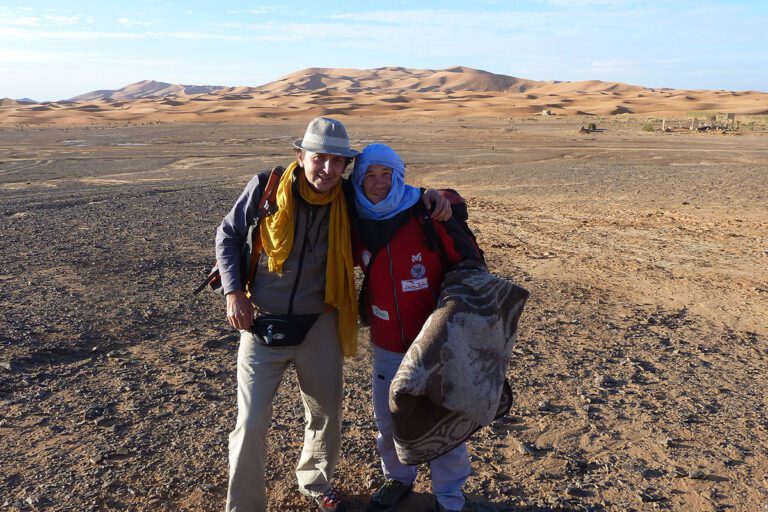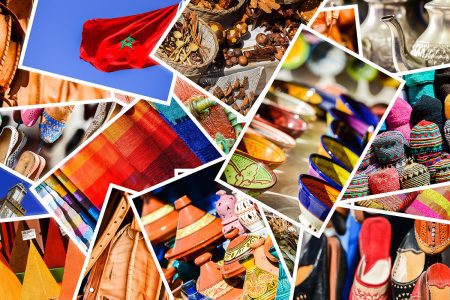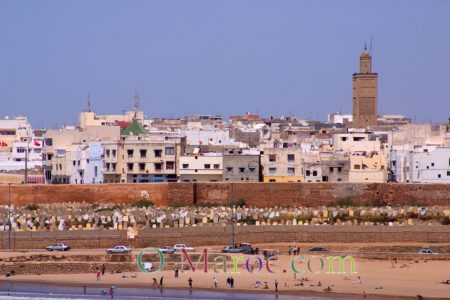Between discussions here and on travel forums, I’ve just reacted several times in three days to a vision of tourism that I find a little idyllic, as a vehicle for human exchanges, almost philosophical, tourism should not be considered too much as an economic activity, so as not to forget its human aspect, the tourist should “go beyond being a simple customer”, travel would have no interest if it didn’t allow you to make friends everywhere and become a citizen of the world.
It seems to me that there’s a lot of confusion and illusions here.
The customer is king
First of all, being ‘just a customer’ is already a huge thing. The customer is king (something I don’t hear very often in Morocco, it’s true), the customer is the person who supports me, every customer must be treated as well as possible, a simple slip-up can jeopardise our reputation and undo the work of several years.
Customers are treated with respect. Whether they have booked a room in a riad for 500 euros a night, or in a small hotel for 30 euros, they are entitled to the same respect, the same satisfaction of their requirements, the same quality of service: I have to do my best to give them what they have bought, and even a little more.
In this sense, I would say that a customer is more than a friend. A friend will excuse our weaknesses, not a customer.
Perhaps in some places we regard tourists a little too much like friends…
Taking an economic view of tourism doesn’t mean that we see customers as commodities or objects. The customers are always the customers, and the buyers. Ultimately, the commodity will be us, the tourism service provider. But considering the customer as a commodity is not the same as having an economic vision, it’s a load of rubbish. We simply have to remember that between a tourist and a guide/hotelier/driver there is an unequal relationship between client and supplier…
The customer is not a friend either
Exceptionally, he may become one, but he is first and foremost a person who has paid for a service.
And this service may include Moroccan hospitality, a place in a family, especially when the customer is curious about other people and wants a trip other than “sunbathing and swimming”.
Here we enter the somewhat imprecise waters of hospitality, of the concept of friendship, and of the illusion, too, of the tourist, who will sometimes believe, in the space of a day, that he has found a friend, deep in a kasbah, or have experienced an "authentic" moment, whose authenticity is repeated every day with different people, who stop by for a few hours, just like him.
Because the codes are different, because the warm hospitality that Moroccans offer to everyone is the same hospitality that we offer to our nearest and dearest, because on holiday we are available to meet someone who is just passing through. Because a friend in Morocco is like a friend in our country, and because words don’t have the same meaning, a friend is someone you’ve met and who has given you their telephone number.
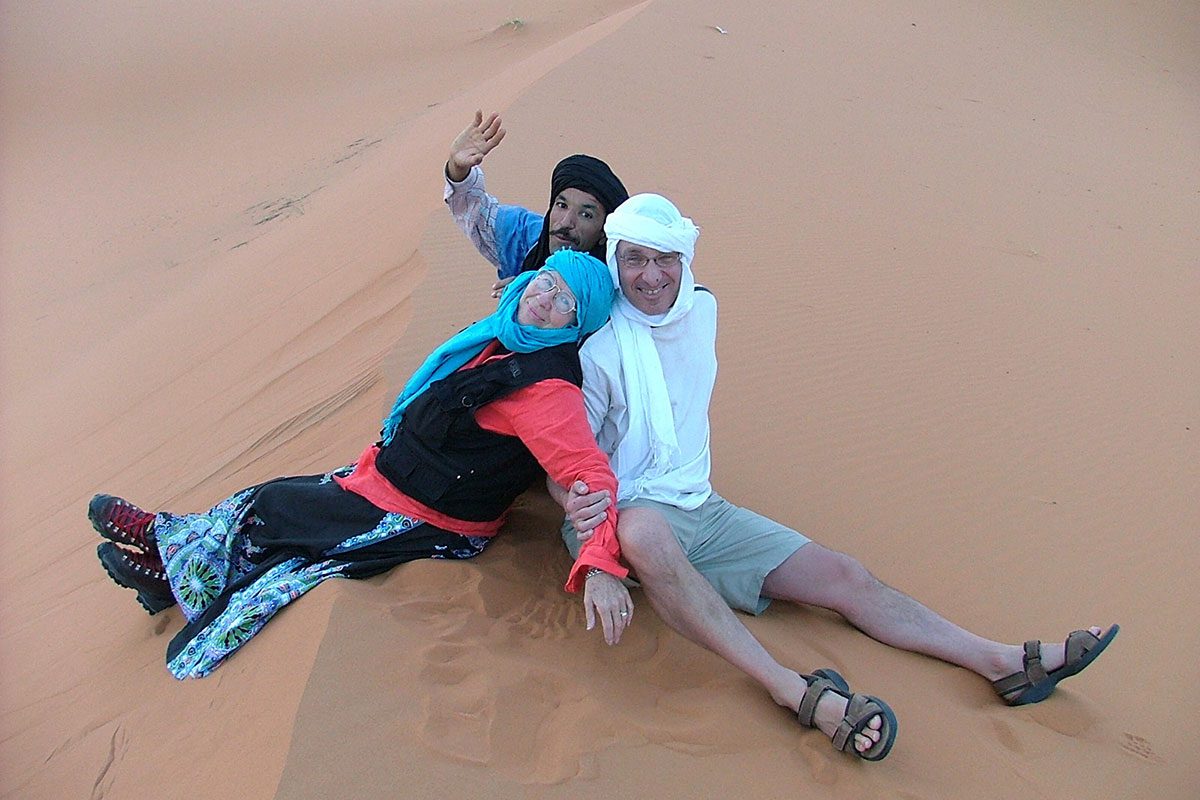
Mutual disappointments?
Then come the disappointments. That of the tourist, who may realise that what he thought was disinterested hospitality was a service, or when, just as he is leaving the house where he drank tea on invitation, he is asked, more or less diplomatically, for a tip, money, to buy something, when the child who so kindly guided him through the souk asks him for a euro and leaves him with an insult if he refuses. And let’s not talk about the disillusionment of women who believed that is was friendship or love – that’s another version of the same story.
Disillusionment also happens in the other direction. How many times have our drivers been disappointed not to receive a reply to letters sent to tourists? Of course, they had left the address, but without bothering to reply. I remember one time when Toufik, who welcomes customers at the Oasis, sent a caftan to Germany at the request of a customer. Nothing, no reply. As I was leaving, he gave me a second package (still bought with his own money), with the address.
I sent it off, nothing, no reply, no return of the parcel, so I ended up looking for the telephone number and calling the family in question. “Oh yes, we’ve received it, thank you”.
I admit I was rather unpleasant, but then again, they’re lucky I don’t speak much German. And we were lucky that Toufik took them as an exception, and didn’t decide to “squeeze the lemon” after that.
But either way, these examples are commonplace, and the price of mixing genres.
Friendship in the land of the Little Prince
Friendship – not having buddies, not camaraderie – is a feeling that takes time to develop. If you’re “Westerner” (European, North American…) it’s not a word you use after five minutes.
While feelings of friendship do, of course, exist in Morocco, they need time to develop, as they do everywhere else in the world. This is the lesson of The Little Prince, the book written by Saint-Exupéry and set in the heart of the Moroccan Sahara that he loved so much. “You become forever responsible for what you have tamed” says the Fox.
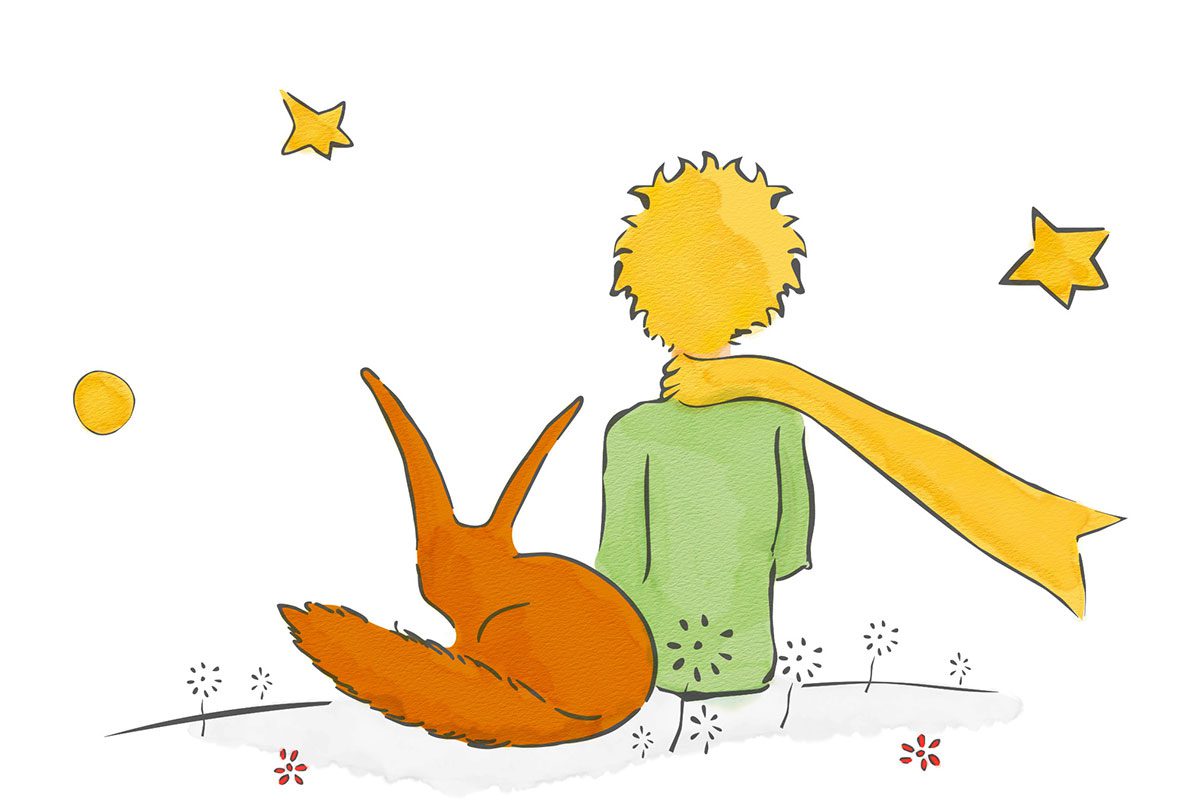
Do you think I’m going too far philosophically? Perhaps I am. But it’s good to put things in their proper place.
Tourists are customers, and as such they are the most important people in the world. In the context of an economic exchange, which may, possibly, rarely, lead to a true friendship.
This does not preclude exchange, discussion and mutual discovery. It just prevents misunderstandings.
Still a relevant issue
Since 2008, tourism in Morocco has become much more professional, expectations have changed and ‘industrial’ tourism is at half-mast.
However, or on the contrary, because of this, for many people, the blurred boundaries I was talking about in 2008 are becoming increasingly blurred.
Many Facebook groups feature Moroccans offering to ‘welcome’ travellers into their homes, in their villages, where they show idyllic photos. They make no mention of the fact that a fee is charged for this service. The advantage for them is twofold: they avoid tourism laws and price comparisons.
On these same social networks, Moroccans are constantly on the hunt: no longer on the hunt for the invitation mentioned in one of the comments to this article, they are now looking for the love story that will enable them to leave. Or the love story that will allow them to have a “rabatteuse” to bring customers to their “friend”.
The development of B&Bs, and then AirBnBs, has increased the demand for home-stay accommodation, or at least tea with the family. A laudable tourist activity, but it has nothing to do with friendship and not that much to do with authenticity.
Unfortunately, the quality of the service has not kept up. Even more than before, the customer is not king.
 A typo or syntax error? You can select the text and hit Ctrl+Enter to send us a message. Thank you! If this post interested you, maybe you can also leave a comment. We'd love to exchange with you !
A typo or syntax error? You can select the text and hit Ctrl+Enter to send us a message. Thank you! If this post interested you, maybe you can also leave a comment. We'd love to exchange with you !

